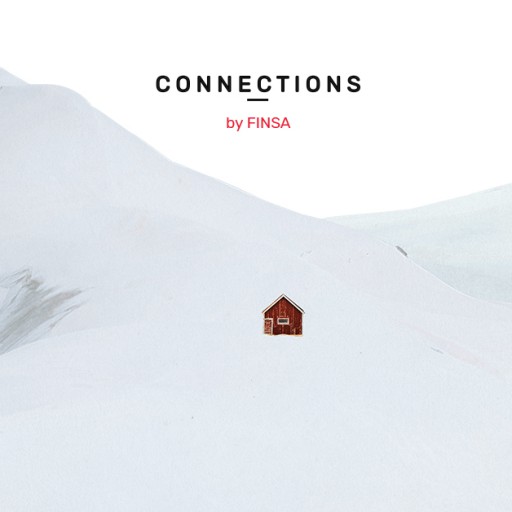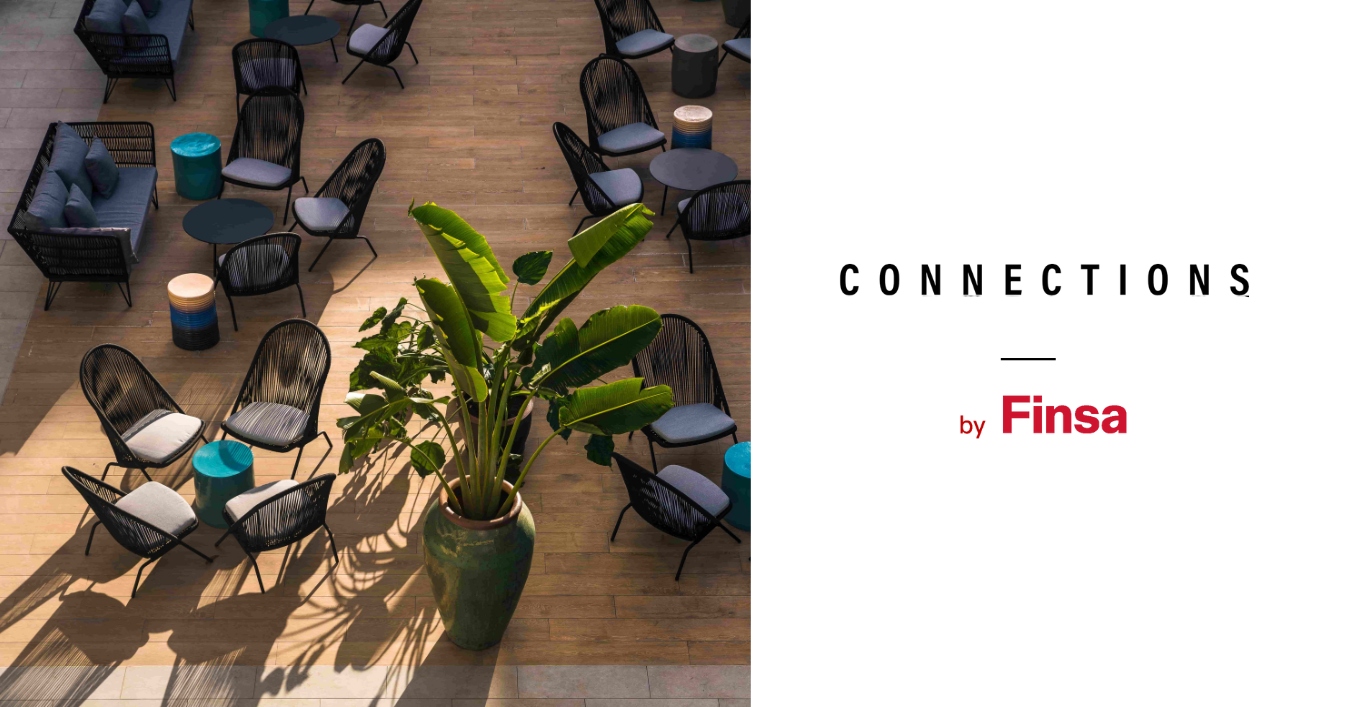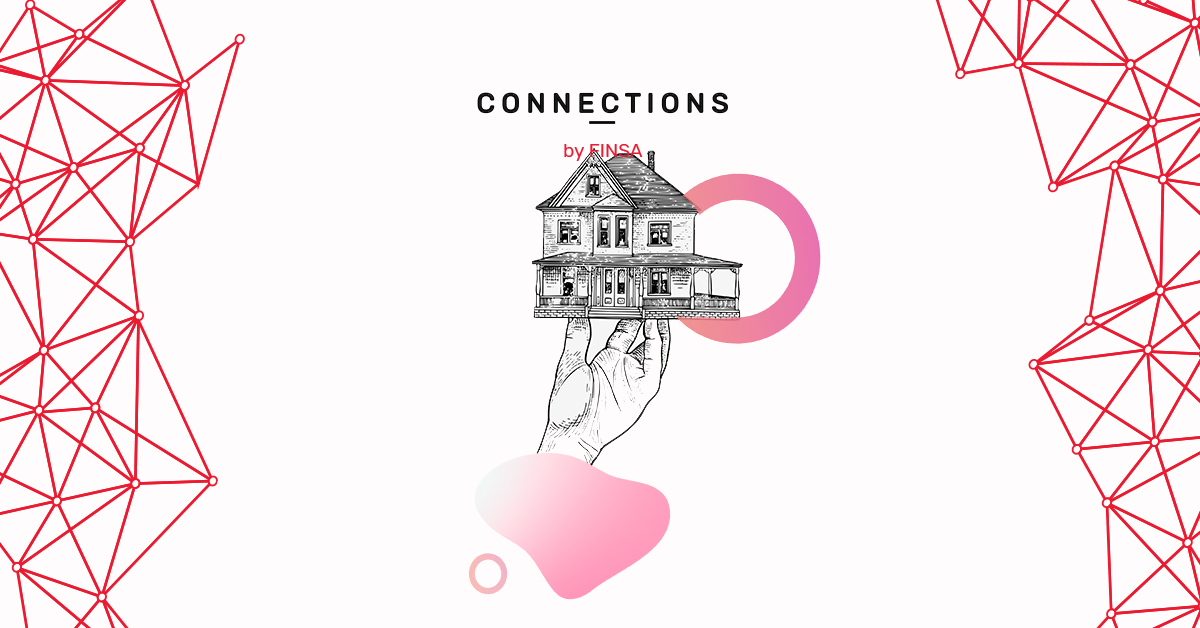Science says that spending money on experiences contributes more to our happiness than spending it on objects. Millennials quickly understood this, and Generation Z is following the same path: according to McKinsey, when traveling, centennials prefer to cut back on any other spending category before cutting back on experiences (unlike baby boomers, who still prefer to invest in comforts like direct flights). Experiential hotels, those that seek to be more than just a place to sleep, are one of the clearest expressions of this trend.
What are experiential hotels?
“Hotels realized that they couldn’t survive solely on their rooms, so they started looking to offer other types of experiences as well,” explains Gloria Viejo, co-founder of Dorotea Estudio. The clearest example is the investment many hotel brands have made to give a boost to their restaurants, spaces that already existed but were generally underutilized. “They couldn’t even attract their own hotel guests because everyone goes out to the streets; you usually want to visit other restaurants in the city”, she notes. In many experiential hotels, however, the restaurant is a destination in itself, for both guests with rooms and for people who will later sleep in their homes or other establishments.
In line with this, many hotels have already incorporated coworking spaces, gyms, and even cinemas. It’s a creative reuse of spaces, giving life to something that until now was underutilized. Trend expert Pepa Casado explains that the aim is to “make use of every square meter” and completely transform these types of spaces. For example, she cites how The Standard Hotel in London turned a space—something seemingly of very little value—into The Retiring Room, an immersive and retreat experience.
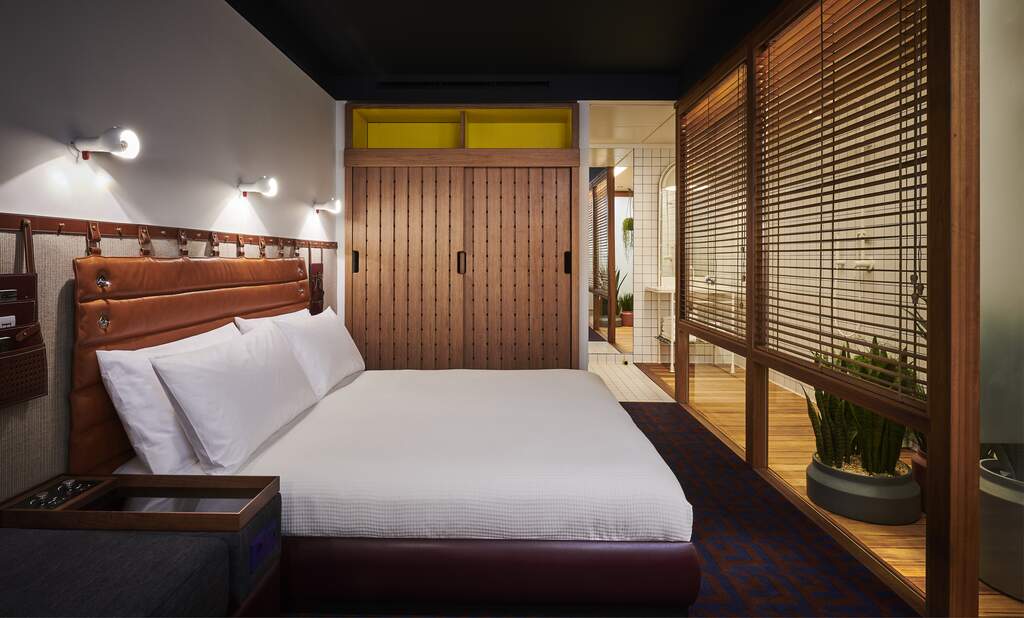
Hallways that become art galleries, corners where you can stop to meditate, lobbies that also function as concert halls… Gloria Viejo mentions the Locke hotels in London. “They are beautiful in terms of interior design and very surprising. When you enter, you’re not quite sure where you are, if it’s a hotel or what it is. There’s a small café connected to a restaurant, but also a meeting space, people can be in private rooms with curtains… And the staff perform all functions: they are not only receptionists but also waiters, and each has a specialty. There’s someone who also tattoos, someone who has a band and plays there once a week, someone who knows a lot about cinema and participates in screenings. All in the same hotel, which attracts both guests who have a room and neighborhood people who come to enjoy the different services,” she notes.
The disconnection experience in hospitality
Many experiential hotels have also detected another important trend: in a permanently connected world, where half the working population suffers from burnout, they seek to be places where it’s possible to forget the outside world. Finsa’s proposal for Interihotel goes in this direction: a representation of the future room, designed to disconnect and eliminate any interaction.
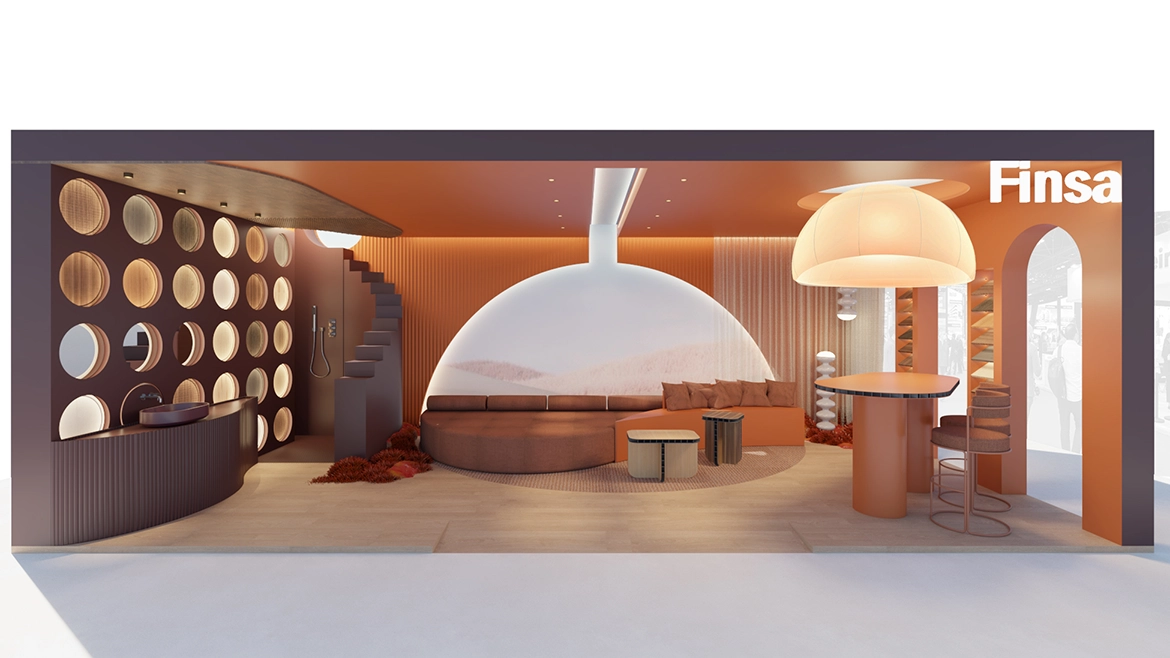
Digital detox
One of these havens of peace is Unplugged, which advertises itself as “the UK’s first digital detox escape.” Its guests go there to deal with work stress, reduce the time they spend on screens, or reconnect with their partners or themselves.
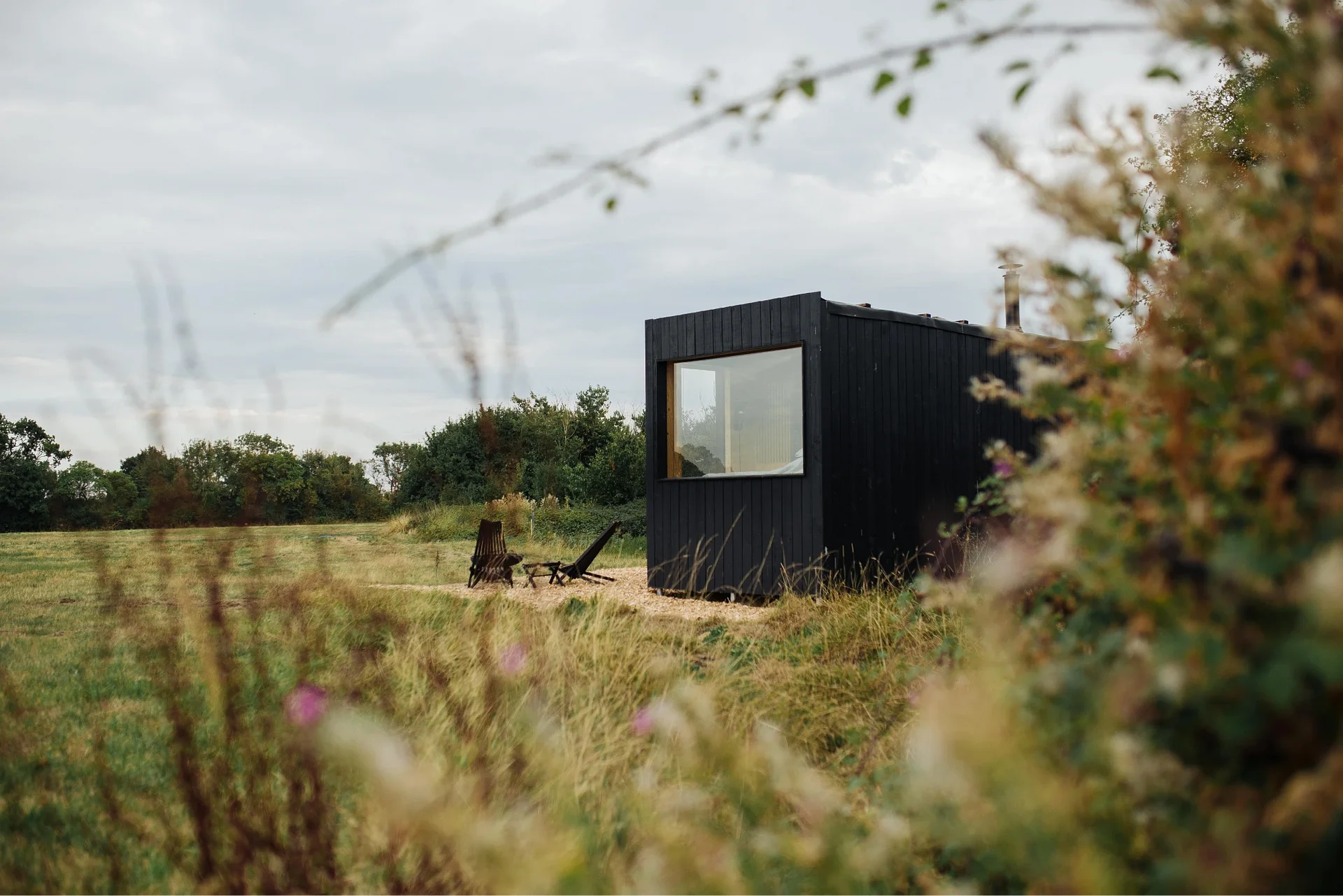
Their digital detox cabins, located in nature-surrounded places, are equipped to allow visitors to return to offline life for a few days. Upon arrival, the smartphone is exchanged (and safely locked away) for an old Nokia. Guests have at their disposal, besides the natural space surrounding them, an instant camera, books, board games, a radio cassette (and tapes), paper maps, and a compass…
Music hotels
Not all hotels where it’s possible to disconnect offer such extreme experiences: in some, the outside world and worries are forgotten through music.
Ver esta publicación en Instagram
The Barceló Imagine in Madrid is one of them: everything in it is designed for the happiness of music lovers, starting with the decoration. But it doesn’t stop there: its strong point is its room service. One call and they will bring the musical instrument or vinyl of your choice to your room (they will also bring the record player to the room).
Ver esta publicación en Instagram
In Porto, the M.Ou.Co hotel, part of the Outsite group, follows a similar philosophy. In this case, its main attraction is a very lively live music program with both Portuguese and international artists. That is, guests could go down to see a concert in slippers, sleep in the same building, and, who knows, even meet the artist the next morning at breakfast. Additionally, they have a collection of 600 vinyl records available to guests, who can take them up to their rooms to listen to, and they frequently organize conferences and exhibitions revolving around music.
Museum hotels
What if the hotel were also a museum? It’s impossible not to disconnect when you can walk around as much as you want—even at night—among contemporary artworks. This is what the 21c Museum Hotels, a line with establishments in various cities across the United States, offer. Each hotel’s collection is usually related to the place where it is located, making staying in them a fantastic way to discover local artists. Their exhibition schedules are also very dynamic, so they are frequently visited by people living in the same city.
Ver esta publicación en Instagram
An afternoon of nap and spa
As Gloria Viejo mentioned, one of the goals of many experiential hotels is to make them attractive places even for people who are not staying there. That is, for local residents to dare to cross their doors without having to spend the night. Does this mean they won’t have a room? Not necessarily. An example is the “nap and thalassotherapy” afternoon offered by the Talaso Atlántico Hotel in the province of Pontevedra. Those who opt for this package will have a room in the hotel from 4 pm to 10 pm and can enjoy the Marine Circuit, one of the thalasso’s services.
Ver esta publicación en Instagram
Hotel with resident astronomer
Stargazing on a clear night is always a wonderful experience, but it’s much more so if there’s an expert by your side who knows all the secrets of the sky and the stories of each star and constellation, explaining everything to you. This is one of the main attractions of the 3100 Kulmhotel, “the highest hotel in the Swiss Alps.” In addition to being a magnet for people who enjoy skiing, its observatory with a large telescope and resident astronomer makes this accommodation a much more special destination. One of its most sought-after experiences includes a dinner under the stars, with the Matterhorn in the background and an astronomy lesson included.
Ver esta publicación en Instagram
A stay at any of these hotels guarantees at least one thing: you will leave them as a completely new person, with the strength and energy to reconnect with the world.


 (@talasoatlantico)
(@talasoatlantico)